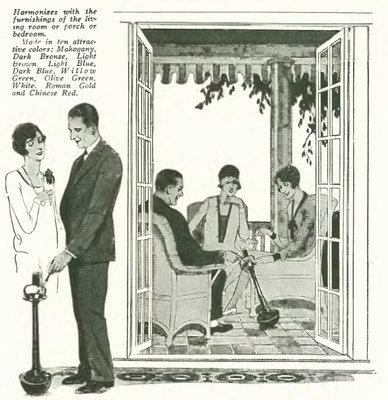There are good reasons for not signing up to do drag shows. I generally weigh the pros and cons: what kind of crowd is it? What's the mood like in the back rooms? How much time do I have to take off work?
I always get twitchy the week before a show because I prefer to have SOME sort of plan. I try to remember which outfits I wore the last few times I was there, and try to come up with something new. I also go over the songs I've done at the venue and do my best to have at least one new one.
The clothes are tough enough -- finding all the matching articles without actually spending the time to try them all on -- but it's the music I really worry about. Picking a song for a drag show is both an art and a science. My preference is for upbeat, somewhat manic numbers with lots of emotion and an obvious storyline (Natasha Richardson's "Don't Tell Mama," for instance). I want a song that *I* would sing (if I could actually sing), something with variety and spice. Spunky and smart and a bit silly. And since I tend to pick songs outside the mainstream, I try to find ones with a storyline that's easy to follow on first listen.
It's harder than you'd think. Ballads are notoriously dull unless the crowd knows them or they have a sizzling emotion to them. The songs people DO know off by heart have already been done a million times, and you need to be a REALLY stellar performer to make people want to watch them again and again.
Fortunately, for a lot of reasons Guelph is a less jaded town than most, so I sometimes successfully "push the envelope," trusting in my own love of the music to hold the attention of others. Sadly, last time I pushed it a bit too far -- I'll never try "The Monkeys Have No Tails in Pago-Pago" again.
My DREAM is to do Kate Bush, and if wigs looked good on me (and if I could find a credible '70s Kate Bush wig) I'd be able to pull off Kate Bush on the basis of it being "Female Impersonation." I've watched her enough to know the stereotypical moves. But I've never plunged into outright impersonation, most people at drag shows don't know who she is, and it's difficult to find an upbeat Kate Bush song, surprisingly...upbeat as in a song that keeps you moving back and forth a lot on stage, without just...well, moving back and forth endlessly for no point.
Anyway, I was at a housewarming party on Saturday night and two people were talking about how they'd re-enacted Kate Bush's "Hammer Horror" video on a drunken dancefloor. This got me thinking: maybe more people DO know who she is, and maybe there's a drag-friendly song I haven't thought of? Armed with a very convenient Kate collection on my iPod, I started evaluating songs.
- Babooshka: Too slow, and the repetition of the word "Babooshka" derails the story for drunken drag show attendees.
- Rocket Man: Sure to charm men and women alike, but...well, slow.
- Sensual World: WAY too slow. Can only be done if you're walking through a polystyrene forest. So no.
- Wuthering Heights: This is the best candidate -- since some people know it -- but it's still too languid for comfort, even with the "let me in-a your window-oh-oh-oh" miming.
- Hammer Horror: Might work, but again: slow. Also requires a man in bondage gear.
- Wow: Cheeky and fun. The only likely candidate.
- December Will Be Magic Again: For holidays only!
- Don't Push Your Foot on the Heartbrake: Faster, but has an alienating jangly '70s rock sound. Not as bad as "James and the Cold Gun," though.
- Anything from "The Dreaming": Much too strange for the average person.
If you're waiting for a solution, forget it, I haven't found it. None of Kate's upbeat songs tell a coherent story; they tend to degenerate into repetition. So instead I'm retreating into the comfort of Poe and working on "Extraordinary Way." Slow, but intense.





